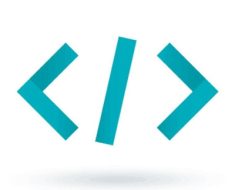

Generative artificial intelligence (AI) technology left an indelible mark on the global stage in 2023, and the legal arena was not exempt from its influence.
Judges Navigate the Uncharted Waters of AI in Courtrooms
U.S. judges found themselves grappling with the implications of evolving AI tools within their courtrooms, especially after instances where lawyers garnered attention for submitting legal briefs containing fictitious case citations generated by tools such as OpenAI’s ChatGPT.
Anticipating Greater Impacts in 2024
Legal experts predict that the courts, as well as the broader legal industry, will experience even more significant impacts from generative AI in 2024 and beyond.
“I think we are just seeing the beginnings of it right now. And I think that the changes will accelerate in the years ahead,” emphasized Andrew Perlman, the dean of Suffolk University Law School.
Legal Consequences for Misuse of AI-Generated Content
In June, two New York lawyers faced sanctions after a judge discovered that they had filed a brief containing six fictitious, AI-generated case citations and later misled the court. In a similar episode, a Colorado lawyer faced temporary suspension from practicing law in November.
Despite claims by the implicated lawyers that they misunderstood the technology, judges insisted that ignorance is not an excuse.
Judicial Response and Orders Governing AI Use
Since the spring, an increasing number of judges have issued orders governing how attorneys can use AI tools in cases before them, recognizing the propensity of these tools to generate inaccurate information.
Shannon Capone Kirk, global head of advanced e-discovery and AI strategy at law firm Ropes & Gray, identified 17 federal or specialty court orders and one state court order addressing the use of AI. She anticipates a surge in such charges 2024 from specific judges or entire courts.
Varied Judicial Approaches and Emerging Certification Requirements
In May, U.S. District Judge Brantley Starr of the Northern District of Texas became one of the first judges to mandate that lawyers certify they did not use AI to draft filings without human accuracy verification. This sparked a trend, with judges nationwide issuing their guidance or mandates.
For instance, the U.S. District Court for the Eastern District of Texas implemented a rule requiring lawyers using AI programs to review and verify computer-generated content. The 5th U.S. Circuit Court of Appeals proposed a similar certification requirement.
Bar Associations Weigh In on Ethical and Professional Implications
Bar associations are also delving into the ethical considerations of generative AI in legal practice. The American Bar Association formed a group in August to assess AI’s impact and probe the ethical questions it raises. The California and Florida Bar are also addressing these issues, with the latter accepting public comment on a proposed advisory opinion.
Potential Confusion and Challenges Ahead
Suffolk University’s Perlman cautioned against explicit rules on lawyers’ use of generative AI, asserting that existing professional conduct and other rules already cover their obligation to vet documents for accuracy. He also expressed concern that varying approaches in court orders could confuse.
Despite the challenges, Perlman emphasized that lawyers regularly use AI and generative AI without realizing it, highlighting their prevalence in legal research tools and software like Microsoft Word.
As the legal landscape navigates the uncharted waters of generative AI, the technology continues to evolve, promising to be the most transformative force the legal profession has ever seen.
Don’t be a silent ninja! Let us know your thoughts in the comment section below.




